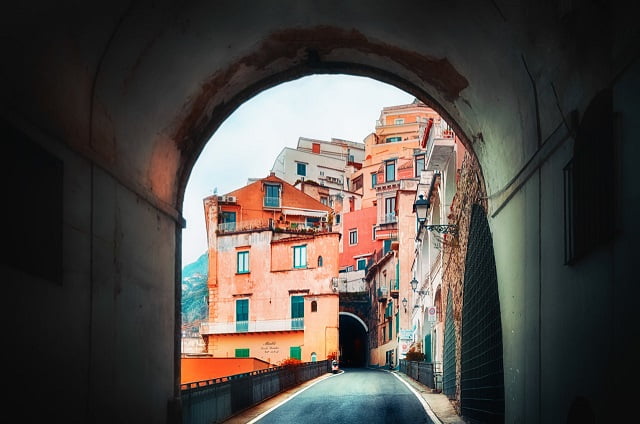Is Italy a safe country to travel to? This is a question that many potential visitors to Italy may have, especially considering the diverse range of experiences and adventures the country has to offer. In this article, we will explore the safety of traveling to Italy, taking into consideration various aspects such as crime rates, safety in Italian cities, avoiding scams and petty theft, transportation safety, natural disaster precautions, health and medical safety tips, and cultural customs for safe travel.
Italy’s reputation as a popular tourist destination often raises concerns about the country’s crime rate. Understanding the reality of crime in Italy is crucial for travelers to make informed decisions about their safety and security while visiting. Additionally, ensuring safety in Italian cities and navigating them with confidence is essential for an enjoyable travel experience free from any potential risks or dangers.
In addition to crime rates and city safety, travelers must also consider issues such as scams and petty theft when visiting Italy. This section will provide valuable tips and strategies for tourists to avoid falling victim to common scams and incidents of theft while exploring the beauty of Italian cities and attractions.
Italy’s Crime Rate
When considering a visit to Italy, it is natural to have concerns about safety, especially when it comes to the country’s crime rate. However, it is important to understand the reality of the situation and not let fear dictate your travel plans. Italy is generally a safe country for tourists, but like any other destination, it is essential to be aware of potential risks and take necessary precautions.
Crime Rate in Italy
Italy does have a crime rate, but it largely depends on the specific location within the country. While some areas may have higher rates of petty theft and scams targeting tourists, overall crime rates in popular tourist destinations such as Rome, Florence, and Venice are relatively low. Violent crime is rare in these areas, and visitors can enjoy their time in Italy without major safety concerns.
Understanding Common Types of Crime
Petty theft, pickpocketing, and scams are among the most common types of crime that tourists may encounter in Italy. This is particularly true in crowded tourist areas, public transportation hubs, and popular landmarks. However, with awareness and caution, visitors can minimize their risk of falling victim to these crimes. It is important to stay vigilant at all times and secure personal belongings such as wallets, purses, and electronic devices.
Local Law Enforcement and Safety Measures
Italian law enforcement agencies are generally responsive and proactive when it comes to addressing safety concerns. Police presence is visible in many public areas frequented by tourists. In case of an emergency or if you become a victim of a crime during your visit to Italy, do not hesitate to seek assistance from local authorities. It is also advisable to keep important documents such as passports and identification secure at all times while exploring the country.
travelers can experience all that Italy has to offer while enjoying a safe and memorable trip.
Safety in Italian Cities
When traveling to Italy, tourists often visit popular cities such as Rome, Florence, and Venice. While these cities are rich in history and culture, it’s important for travelers to be aware of safety tips to ensure a smooth and enjoyable trip. One of the most common issues faced by tourists in Italian cities is pickpocketing. It’s essential to remain vigilant at all times, especially in crowded areas such as tourist attractions, public transportation, and busy streets.
To avoid falling victim to pickpocketing, travelers should consider using anti-theft bags or wallets with RFID blocking technology. It’s also advisable to keep valuable belongings secure and out of sight. Additionally, tourists should be cautious when approached by strangers who may be attempting to distract them while an accomplice steals their belongings. By staying alert and taking preventive measures, visitors can minimize the risk of becoming a target for petty theft.
Moreover, it is recommended for tourists to familiarize themselves with the local emergency numbers and the location of the nearest embassy or consulate. This information can be crucial in case of any unforeseen circumstances during their time in Italy.
| Tips for Tourists | Recommendations |
|---|---|
| Remain vigilant at all times | Keep valuable belongings secure |
| Consider using anti-theft bags or wallets | Familiarize with local emergency numbers |
| Avoid being distracted by strangers | Know the location of the nearest embassy or consulate |
Avoiding Scams and Petty Theft in Italy
When visiting Italy, it is important for tourists to be aware of potential scams and petty theft that could occur. While Italy is generally a safe country to travel to, it is not exempt from the possibility of encountering those who may try to take advantage of unsuspecting visitors. To ensure a safe and enjoyable experience while exploring this beautiful country, here are some tips for avoiding scams and petty theft in Italy:
- Be mindful of pickpockets in crowded tourist areas such as popular landmarks, public transportation, and busy streets. Keep your personal belongings secure and consider using a money belt or hidden pockets to store valuables.
- Avoid carrying large amounts of cash and keep important documents like passports and credit cards in a safe place, preferably locked up at your accommodation.
- Stay vigilant of common scams such as distraction techniques used by thieves – this could include someone bumping into you or asking for directions while an accomplice attempts to steal from you.
It’s important for travelers to also be cautious when using ATMs, especially those located in secluded or dimly lit areas. Always cover the keypad when entering your PIN and check the machine for any signs of tampering before making a withdrawal. By staying informed and exercising caution, visitors can greatly reduce their risk of falling victim to scams or theft during their time in Italy.
Additionally, it may be beneficial for tourists to familiarize themselves with local laws and emergency contact information in case they do become victims of theft or other crimes. Reporting incidents promptly can help authorities take action against perpetrators and improve safety measures in affected areas. Ultimately, arming oneself with knowledge about common scams and taking proactive steps towards prevention can contribute to a more secure travel experience in Italy.
Transportation Safety
When traveling to Italy, it is important for tourists to understand the transportation options available and how to navigate them safely. Whether using public transportation, renting a car, or walking through cities, there are important tips to keep in mind to ensure a safe and enjoyable travel experience. Here are some key points to consider when it comes to transportation safety in Italy:
- Public Transportation: Italy offers an extensive network of public transportation including trains, buses, and trams. It is generally considered safe to use these modes of transport, but travelers should be vigilant of pickpocketing and personal belongings while on crowded vehicles.
- Renting a Car: For those who prefer the flexibility of having their own vehicle, renting a car in Italy can be a convenient option. However, it is essential to familiarize yourself with local traffic laws and driving customs. Always lock your car and never leave valuables in plain sight.
- Walking Safety: Exploring Italian cities on foot is a wonderful way to immerse oneself in the culture, but it’s important to remain aware of your surroundings. Stick to well-lit areas at night and avoid isolated streets or alleyways.
Italy’s diverse urban landscapes offer unique opportunities for exploration, but it’s imperative for travelers to prioritize their safety while navigating through the country’s cities and towns. By staying informed about transportation safety measures and taking necessary precautions, tourists can enjoy all that Italy has to offer without compromising their well-being. As you plan your trip, remember that understanding the ins and outs of getting around in Italy will help ensure a smooth and secure travel experience.
Is Italy a safe country to travel? With proper awareness and preparation, it most certainly is.
Natural Disasters and Safety Precautions in Italy
Italy is a beautiful country with a diverse landscape that includes stunning coastlines, rolling hills, and towering mountains. However, it’s important for travelers to be aware of potential natural disasters and safety precautions when visiting Italy. While the likelihood of encountering a natural disaster during your trip is low, being prepared and informed is essential for ensuring a safe and enjoyable travel experience.
One of the most common natural disasters in Italy is earthquakes. The country is situated on several fault lines, making it prone to seismic activity. While major earthquakes are rare, it’s still important to familiarize yourself with safety procedures in the event of an earthquake. Be sure to know the emergency evacuation routes at your accommodations and have a basic understanding of what to do in case of an earthquake.
Another potential natural disaster in Italy is flooding, particularly in regions prone to heavy rainfall or those located near rivers. Before traveling to these areas, check weather forecasts and be mindful of any flood warnings issued by local authorities. It’s also a good idea to have travel insurance that covers natural disasters, including flooding.
In addition to earthquakes and flooding, travelers should also take precautions against extreme heat during the summer months. Italy can experience high temperatures, especially in southern regions like Sicily and Puglia. Stay hydrated, seek shade during peak sunlight hours, and avoid strenuous outdoor activities during the hottest parts of the day. By being aware of potential natural disasters and taking necessary safety precautions, travelers can enjoy their time in Italy while minimizing any potential risks.
Health and Medical Safety Tips for Travelers in Italy
When traveling to Italy, it’s important to consider health and medical safety to ensure a smooth and enjoyable trip. This section will provide valuable tips for travelers on how to stay healthy and safe during their visit to Italy.
Travel Insurance and Medical Care
One of the most crucial aspects of health and medical safety while traveling in Italy is ensuring that you have adequate travel insurance. Before departing for your trip, it is recommended to purchase travel insurance that includes coverage for medical emergencies, hospital stays, and emergency medical evacuation. In case of unforeseen illness or injury, having travel insurance can provide peace of mind and financial protection.
Medical Facilities and Pharmacies
Italy boasts a high standard of healthcare with modern hospitals, clinics, and pharmacies located throughout the country. Travelers should take note of the locations of nearby medical facilities and pharmacies in the areas they plan to visit. It is also advisable to carry a small first aid kit with basic medications such as pain relievers, antihistamines, anti-diarrheal medication, and any prescribed medications.
Food Safety and Hygiene
To avoid foodborne illnesses during your travels in Italy, it is essential to prioritize food safety and hygiene. Opt for reputable eateries that maintain high standards of cleanliness and quality. Additionally, be mindful of consuming raw or undercooked foods, unpasteurized dairy products, or unpeeled fruits and vegetables from street vendors. By practicing good food hygiene habits, travelers can minimize the risk of gastrointestinal issues while enjoying Italian cuisine.
By taking these health and medical safety tips into consideration during your travels in Italy, you can focus on immersing yourself in the rich culture and stunning landscapes without compromising your well-being. Prioritizing health precautions will contribute significantly to a memorable and safe travel experience in Italy. Is it Italy a safe country to travel to? With thorough preparation and awareness of health considerations, travelers can confidently explore all that Italy has to offer.
Cultural Customs and Social Etiquette for Safe Travel in Italy
Italy is famous for its rich cultural heritage, and travelers often visit the country to experience its art, history, and traditions. However, understanding and respecting Italian cultural customs and social etiquette is essential for a safe and enjoyable travel experience. By familiarizing yourself with these customs, you can avoid unintentional faux pas and show respect for the local culture.
When greeting someone in Italy, it is customary to use a handshake, especially in more formal settings. It is also common for people to greet each other with a kiss on the cheek, particularly among friends and family members. Additionally, Italians tend to stand closer together during conversations compared to individuals from other cultures. Being aware of personal space boundaries can help travelers avoid making others feel uncomfortable.
Another important aspect of Italian social etiquette is dining customs. When dining in Italy, it is considered polite to wait for everyone at the table to be served before beginning your meal. Additionally, it is customary to keep your hands above the table during a meal rather than resting your wrists on it. Understanding these dining customs can help travelers navigate social interactions with confidence.
Furthermore, being respectful of religious traditions in Italy is crucial for travelers. Visitors should dress modestly when visiting religious sites such as churches or cathedrals and follow any specific guidelines provided at these locations. By demonstrating awareness and mindfulness of cultural customs and social etiquette, travelers can contribute to a positive and respectful interaction with locals while visiting Italy.
| Cultural Element | Social Etiquette |
|---|---|
| Greetings | Handshake or cheek kisses; maintain appropriate personal space |
| Dining Customs | Wait for everyone to be served; keep hands above the table when eating |
| Religious Sites | Dress modestly; follow specific guidelines at churches or cathedrals |
Conclusion
In conclusion, Italy is generally a safe country to travel to, but like any other destination, it does have its own set of safety concerns that travelers should be aware of. Italy’s low violent crime rate makes it a relatively safe place to visit, and most tourists do not encounter any major safety issues during their stay.
However, petty theft and scams can be common in popular tourist areas, so it is important for visitors to remain vigilant and take precautions to protect themselves and their belongings.
When exploring Italian cities, tourists should follow basic safety tips such as avoiding poorly lit areas at night, staying alert in crowded places, and keeping an eye on their personal belongings. It is also advisable for travelers to familiarize themselves with local transportation options and to be mindful of pickpockets while using public transport or visiting busy attractions.
Additionally, being aware of potential natural disasters in Italy such as earthquakes or floods can help tourists make informed decisions about their travel plans and stay safe during their trip.
Ultimately, with the right knowledge and preparation, Italy can offer a safe and enjoyable travel experience for visitors from around the world. By understanding the reality of Italy’s crime rate, practicing common-sense safety measures, and respecting local customs and etiquette, travelers can minimize any potential risks during their trip.
So to answer the question “Is Italy a safe country to travel to?” – Yes, with proper precautions and awareness of potential risks, Italy is indeed a safe country for travelers to explore and enjoy.
Frequently Asked Questions
Is It Safe for Americans to Travel to Italy?
It is generally safe for Americans to travel to Italy. The country has a low crime rate, especially in tourist areas, but travelers should still be aware of pickpocketing and scams in crowded places like train stations and popular attractions.
Is Italy Safe at Night?
Italy can be safe at night, but it’s important to take precautions just like in any other country. Tourist areas and city centers are usually well-lit and populated, but it’s advisable to avoid poorly lit or deserted areas, especially if you’re unfamiliar with the surroundings.
What Is the Safest Part of Italy?
The safest part of Italy can vary depending on individual experiences and perceptions. Generally, smaller cities and towns are considered safer than big cities like Rome or Milan. Areas with lower crime rates include regions like Umbria, Marche, and Trentino-Alto Adige. However, it’s essential to exercise caution regardless of the location when traveling in a foreign country.

I’m a passionate traveler, writer, and Italophile. My fascination with Italy’s history, art, and culture has led me on countless adventures across the Italian landscape. Through “I Live Italy,” I share my love for this extraordinary country and aims to inspire others to explore its boundless beauty.





